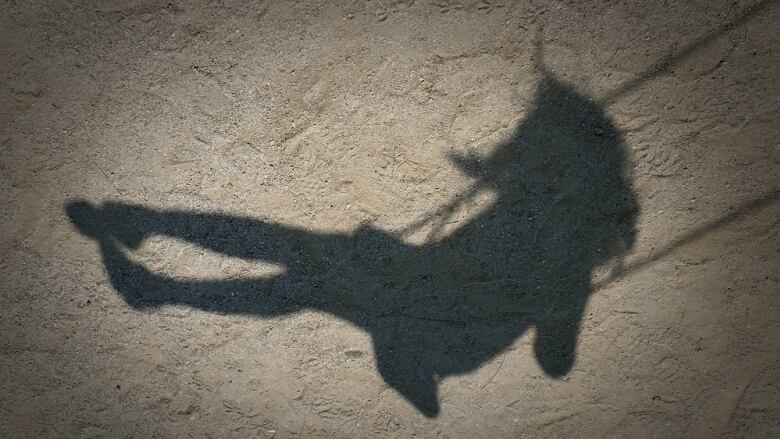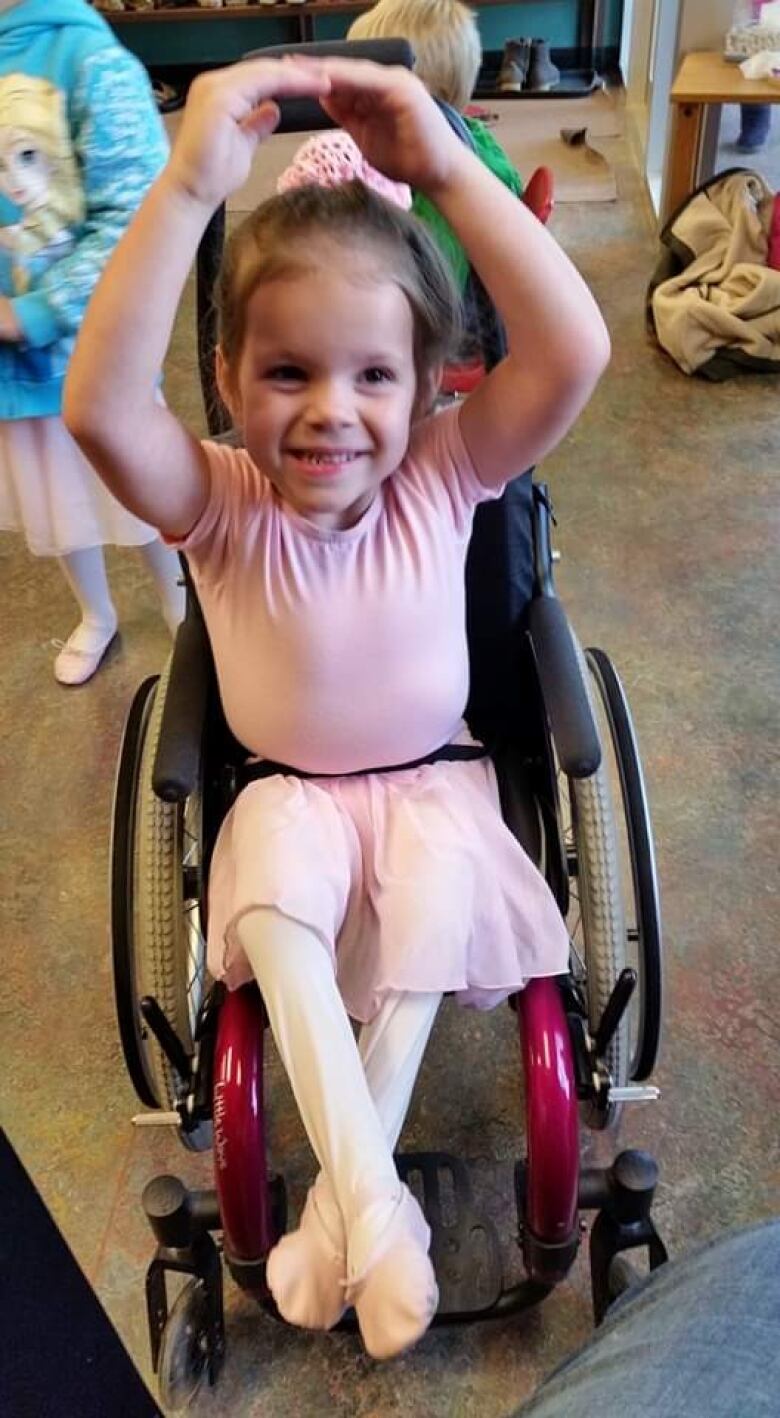Disabled people are experts in adaptation. They should make the rules, not schools
I have the same disability as Alexis Rosseel, a girl who was "unregistered" from her dance class

I have the same disability as Alexis Rosseel, a seven-year-old girl who was "unregistered" from her dance class outside of Edmonton because she's disabled. The school is working on a draft policy to accommodate students with disabilities in accordance with its insurance requirements, but in the interim, Alexis can't dance with the other kids. According to her father, the school is considering creating an "accessibility class," for which it would need to find at least six disabled kids, rather than keeping her in an integrated class, which is what Alexis and her family wants.
Like Alexis, I also use a wheelchair. Today, I'm the world champion of wheelchair parapole, a professional circus aerialist and a wheelchair paragliding pilot. But I had to fight to accomplish these things, and it started back in the early '80s, when I was the same age as Alexis, facing similar issues in my schools.
Thirty years ago, the administrators in my Ontario public school frequently called my mom in alarm: when I was running around with the other kids, when I was playing. At recess, I would hook the plastic of my knee-high leg braces over the metal of one bar, and rest my ankles under the next bar, cantilevering my body weight with the aid of the stiff plastic so that I could hang upside down without relying on the mostly paralyzed muscles in my legs.
Getting up and down was a matter of using my strong arms and torso, and my command of momentum. It was my favourite playground apparatus and the precursor to my career as an aerialist today. But instead of having a watchful adult call out "be careful, Erin" and otherwise leave me to it as was the standard for all the other children on the same monkey bars I was asked to come down. It was defining to be "unregistered" from so much of what I wanted to do, things I knew I was fully capable of doing.
The way people around me framed "risk" and "danger" and "safety" for me threatened to shape the way I perceived the world and myself. But I saw through it: if I needed to be told I couldn't do something in order to make me stop doing it, then it couldn't be true that I wasn't capable. If I could tumble and play on my own terms when I was at home, I wasn't suddenly in danger while doing so at school.
Variable standards
The school's policy had nothing to do with my actual limits or capabilities, it was based on the framework that I, as a person with a disability, existed in: one of liability.
The thinking around risk and liability for the disabled population is held to a wildly different standard than that for the general able-bodied population. Able-bodied people get to choose what activities to participate in and assume responsibility for the consequences of that participation. Disabled people are the liability of anyone who facilitates them or happens to be adjacent.
Arguably, this exists to prevent abuse of a vulnerable population, as well as an attempt to include us. But the way it is currently wielded, often without critical analysis or input from that vulnerable population, in effect creates a different kind of vulnerability for disabled people that has nothing to do with our medical conditions.
The limits projected upon us are the actual barriers we face when ableist assumptions turn into policies. In other words Alexis' body is not stopping her from dancing; a policy is.

This is further complicated by the fact that when we ask for accessibility or support in order to participate, we are essentially asked to give up autonomy or accept segregation. Any person with a disability who has been in this situation knows the devastating position of having to fight for a place where it has been made very clear that you are not welcome, and you are not equal.
It's normal to teach six-year-olds to do cartwheels and somersaults and pirouettes, movements in which they could (and do) fall right on their heads or smash their toes or break their arms. But despite the physical risks, able-bodied kids get to try and learn and figure out how their bodies move.Disabled children, by contrast, are kept inside and away from the things that would empower them, encourage them, strengthen them and allow them to grow into accountable, contributing members of society.
A lot of the limits society assumes disabled people have are limits created by society, and this is how it happens. This is how you teach her that she can't and she shouldn't. Be good, stay home, don't make a fuss, we just want what's best for you. And if she believes you, if she internalizes it and lives a smaller life than she desires, and a smaller life than that of which she is capable.
If you want to make your dance class "safe" and inclusive for students with disabilities, ask your student and her parents what would make it safe and inclusive. Requiring a minimum of six other disabled dancers so you can teach them in a separate class creates an inevitable barrier that her disability didn't generate you did. That's called segregation, not inclusion.
Disabled people yes, even children are experts at the adaptations required to use their body in an able-body-oriented world. Not insurance companies.
Alexis, their rules don't tell the truth about what you can do. Don't stop dancing.
This column is part of CBC's Opinion section. For more information about this section, please read ourFAQ.












_(720p).jpg)


 OFFICIAL HD MUSIC VIDEO.jpg)
.jpg)



























































































